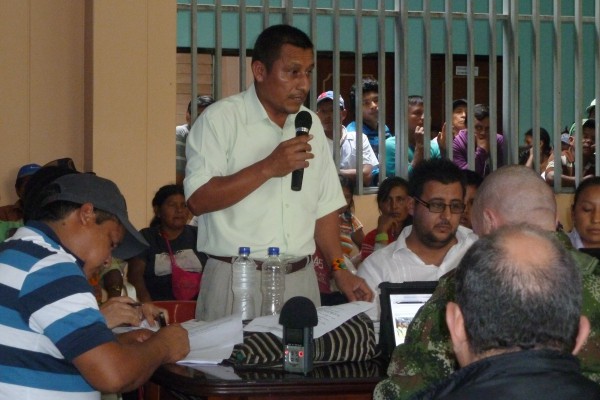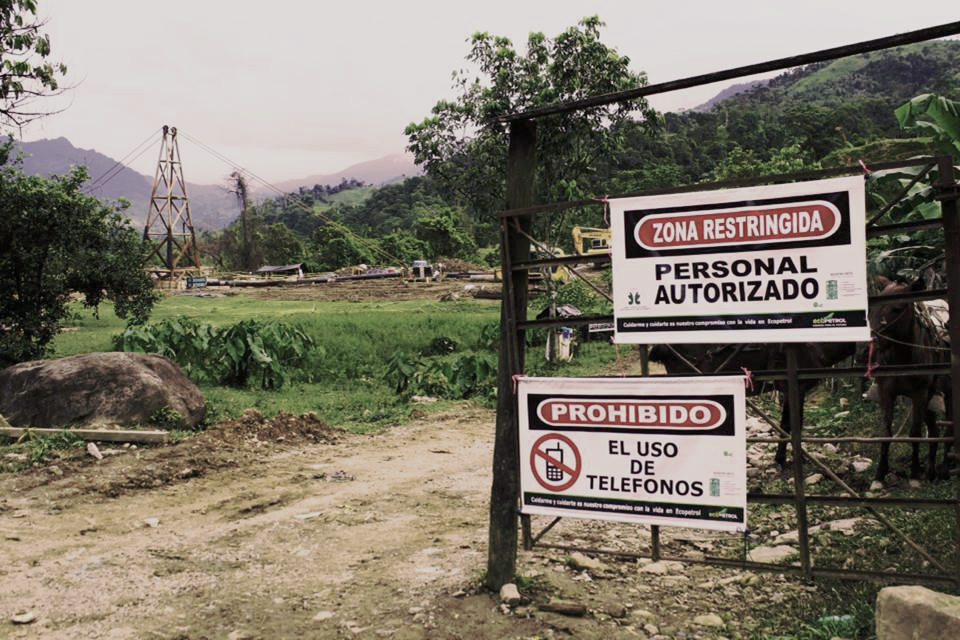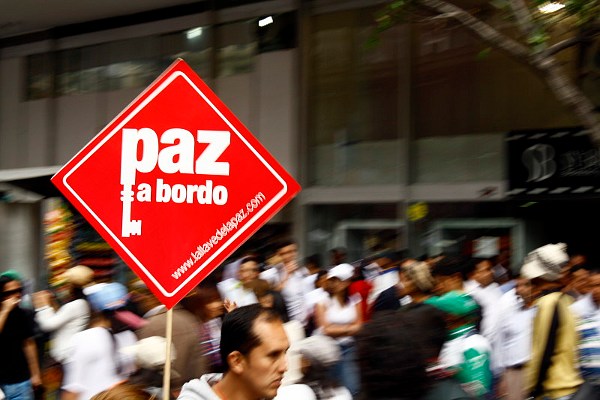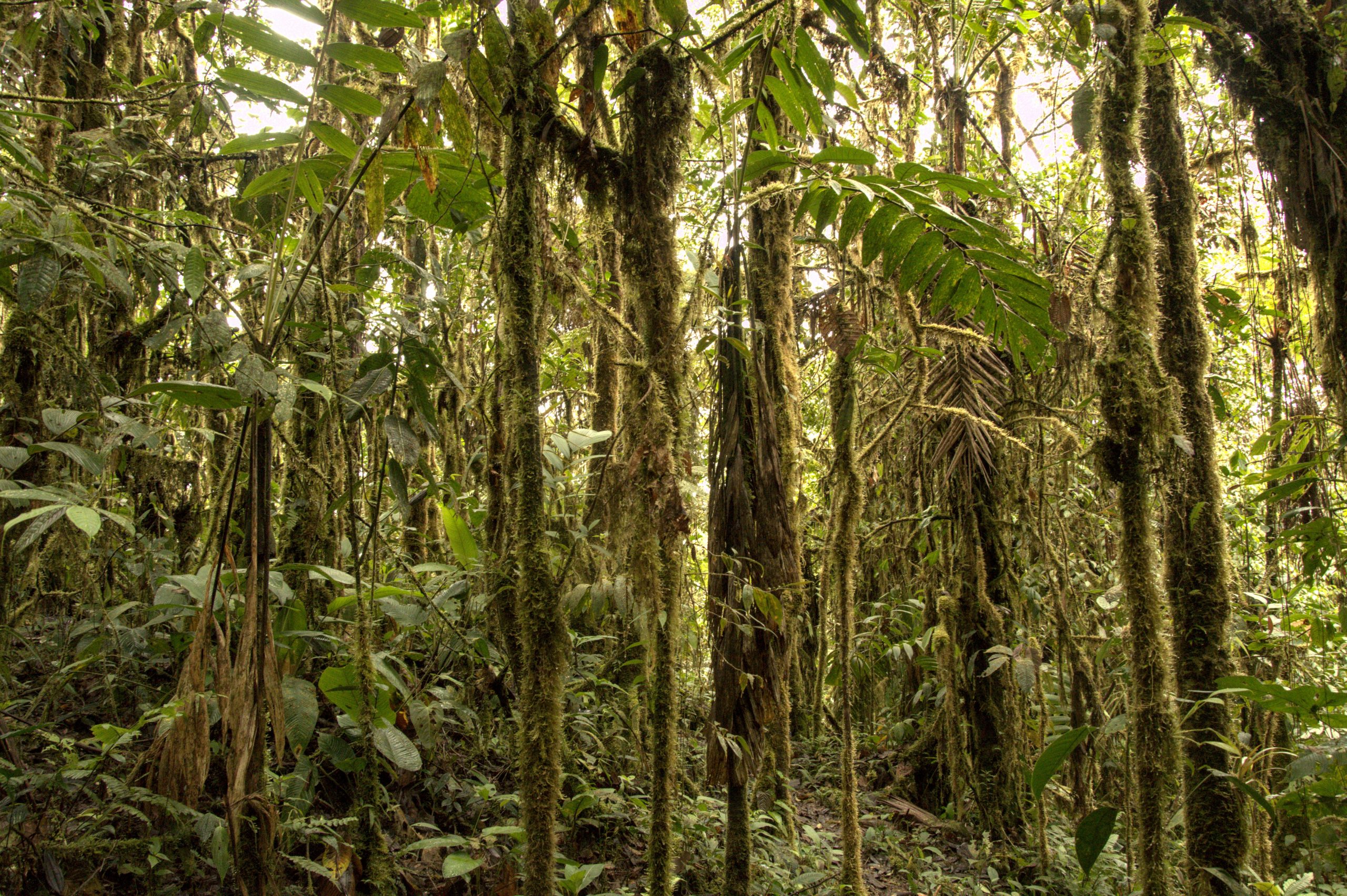
By: Marcela Zuluaga – July 9th, 2014
For the Uwa people, 2014 has been characterized by a strong fight against the oil extraction projects on their ancestral territory.
So far this year, members and leaders of the Uwa people have met on several occasions with commissions of the National Government, with the Ministries of the Interior and Mines, and the president of Ecopetrol, with the objective of ratifying the guarantees which they deserve regarding their territorial rights, including that the company cancel all the oil projects they operate, including the ones that are being blocked on their ancestral territory, such as the Magallanes Exploratory Drilling Area (APE Magallanes).
Similarly, during the meetings and discussions held in the Uwa villagers’ homes, held on the days of April 25th, May 1st, June 6th and June 27th of this year, more than 400 Uwa indigenous people reminded the government that they are in danger of physical and cultural extinction, as recognized by Edict 004 of 2009 of the Constitutional Court, and denounced situations that affect the increased militarization of their territories, the restrictions suffered for their mobilization and the invasion and contamination of spaces fundamental to their culture, such as the Cubugón river.
Concerning the meeting held on June 6th with the government, Éver Tegría Eucadia, member of the Uwa community and part of the technical team of the town high council, comments with disappointment that «it was evident that we did expect more of the national government regarding the report of each one of the state institutions, that they would have presented decisive arguments, that would even cause us to change our minds, but the truth is that the institutions that supported the presentation do not have the arguments and elements we expected, they did not have that clarity to present a report». On the contrary, Tegría notes that the presentation of the Uwa people actually was clear: «We, in the presentation we did, gathered together each and every one of the elements that exist to support life, not only for the Uwa people but of all the Colombian people».
The Uwa people have set off for a new process of struggle and defense of their rights. Because of this, it has been supported by a technical team, comprising experts from mestizo and indigenous origins, professionals in the legal field, land and environment. Indigenous authorities noted that the capabilities that the Uwa people have to defend themselves in the framework of capitalism are limited and have recognized their weaknesses. Therefore, the technical team conducted a study with 17 traditional authorities of this native community, which has raised the debating and negotiation capacity of the high council.
The latter process is accompanied by processes of struggle and resistance that the Uwa community has historically developed: community meetings, assemblies, conventions with traditional authorities, cultural events and acts of spiritual guidance. For all this they have succeeded in making the issue of oil extraction visible in their territories at the national and international stages. Furthermore, they have implemented the activation of support networks of environmental and human rights defense organizations, which has put the Uwa territorial issue on the agenda of the Colombian Government.
On the day of June 6th, it was possible to determine the continuity of the process of legalization of the Uwa indigenous reservation and the constitution of the indigenous reservations of Santa Marta and Pedraza. In addition, greater attention to the issue of health was demanded of the national government, for which the Ministry of Social Protection and the Uwa Association (ASOUWA) will schedule a meeting in the first week of July 2014. Concerning the oil project APE Magallanes, it was defined that it must continue to be suspended and a joint committee between the government of the Uwa nation and the National Government was formed in order to define the terms of reference for the study of the impacts of the project and the team of professionals from the Institute of Environmental Studies (IDEA) of the National University of Colombia who would be in charge.
The decision to suspend the Magallanes project, well underway for several months in Cubará by Ecopetrol, was ratified on June 27th, the date on which a meeting was made once again between the Uwa people, the national government and Ecopetrol. No agreement was reached either in that space on the exploration and exploitation of hydrocarbons, especially natural gas.

According Éver Tegría, «the State realized that it had to ask for another space for them, to agree among institutions, because they have isolated things, while our world is integral, it is a question that has flexibility between word, action and thought, everything is closely engaged».
Finally, the Uwa people declare that they will remain present in Magallanes as guardians of the land and, if necessary, will use all legal, political and cultural resources to defend their ancestral territory since their authorities consider it a just and dignified protest for demands not only for the Uwa but for humanity. They are aware that they need the air, the water and the land to continue to exist. Furthermore, for them the protection of the territory allows the construction of peace and their identity, and allows both peasants and indigenous people in the territory to live together without problems.
__________
* Translated by: Liesl Drew.
Si encuentras un error, selecciónalo y presiona Shift + Enter o Haz clic aquí. para informarnos.


